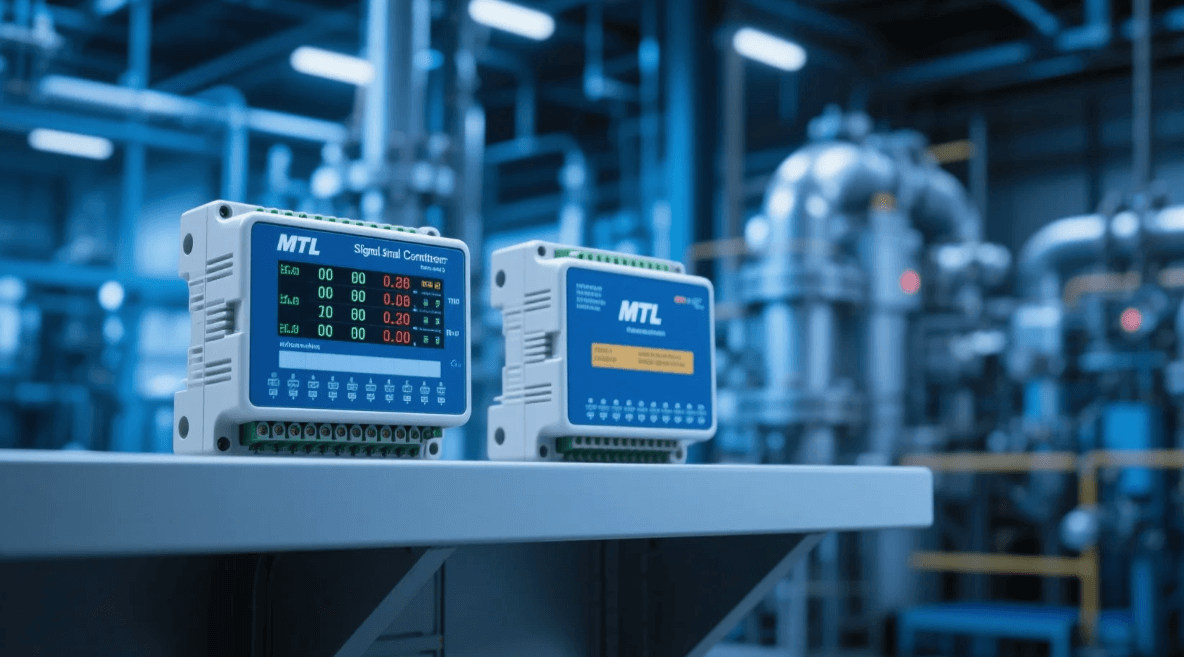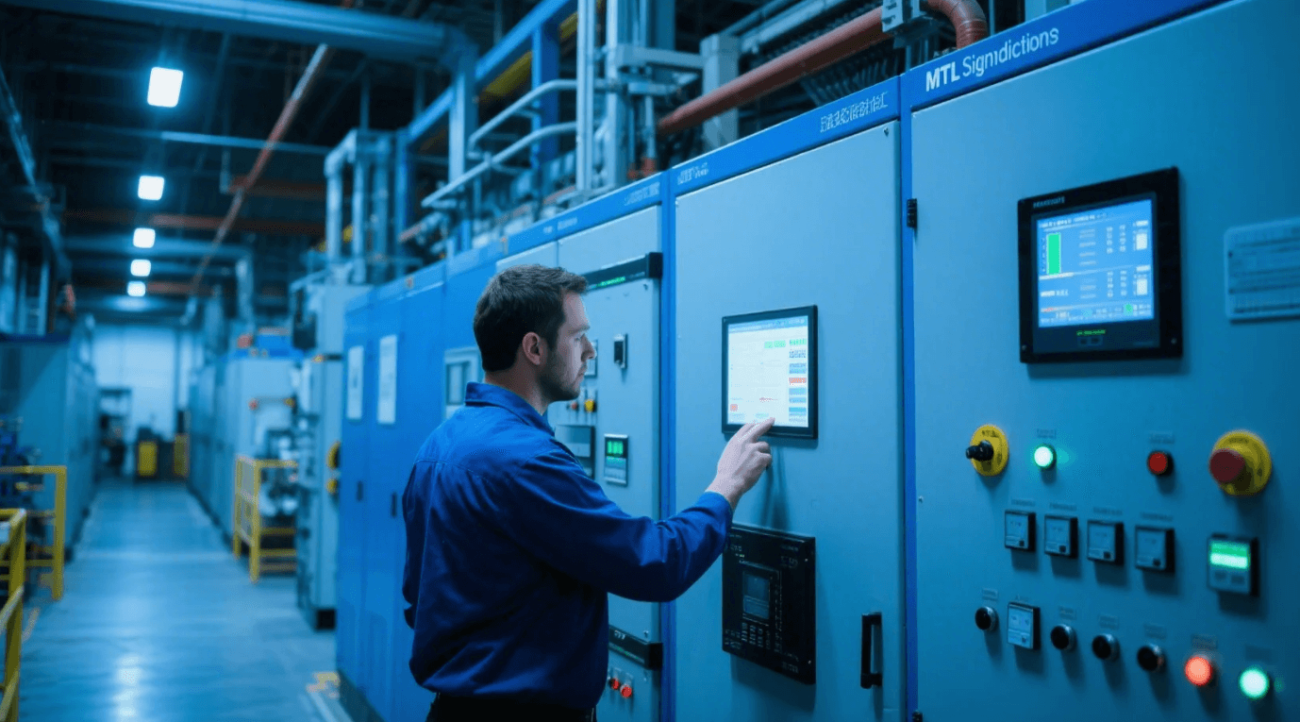プロセス制御用MTLシグナルコンディショナ:オートメーション効率の向上

Introduction: The Role of Signal Conditioning in Process Control
In the realm of electrical process control and automation, maintaining signal integrity is paramount. Signal conditioners serve as vital components that ensure accurate and reliable data transmission between field instruments and control systems. Among the leading solutions, MTL signal conditioners for process control stand out for their robustness and efficiency.
Understanding Signal Conditioning
What Is Signal Conditioning?
Signal conditioning involves modifying an analog signal to meet the requirements of the next processing stage. This includes amplification, filtering, converting, and isolating signals to ensure they are suitable for further processing .
In industrial settings, signals from sensors can be weak or noisy. Signal conditioners enhance these signals, ensuring accurate data reaches the control systems. This is crucial for maintaining system stability and efficiency.

Features of MTL Signal Conditioners for Process Control
High Signal Integrity
MTL signal conditioners for process control are designed to maintain high signal integrity, reducing noise and preventing signal degradation over long distances.
Electrical Isolation
These devices provide electrical isolation between input, output, and power supply, protecting control systems from voltage spikes and ground loops .
Versatility
MTL signal conditioners support various input types, including thermocouples, RTDs, and 4–20 mA current loops, making them adaptable to diverse industrial applications .
Compact Design
With a slim profile, MTL signal conditioners save space in control panels, facilitating easier installation and maintenance.
電気プロセス制御とオートメーションにおける応用
産業オートメーション
In automated manufacturing, MTL signal conditioners for process control ensure precise signal transmission from sensors to controllers, enhancing product quality and reducing downtime.
Power Systems
In power system automation, these devices play a critical role in monitoring and controlling electrical parameters, contributing to system reliability and efficiency .
Hazardous Environments
MTL signal conditioners are suitable for use in hazardous areas, providing safe and reliable signal processing in industries like oil and gas, where safety is paramount .

Benefits of Implementing MTL Signal Conditioners for Process Control
Enhanced System Reliability
By ensuring accurate signal transmission, MTL signal conditioners contribute to overall system reliability, minimizing errors and operational disruptions.
Improved Safety
Electrical isolation features protect both equipment and personnel from potential hazards, aligning with safety standards and regulations.
Cost Efficiency
Reducing signal-related issues leads to lower maintenance costs and improved operational efficiency, offering long-term financial benefits.
Selecting the Right MTL Signal Conditioner
Assessing Application Requirements
Consider the specific needs of your application, including signal types, environmental conditions, and safety requirements, to choose the appropriate MTL signal conditioner.
Consulting Technical Resources
Refer to technical datasheets and consult with experts to ensure the selected device meets all operational criteria and integrates seamlessly into your system.
結論
MTL signal conditioners for process control are integral to modern industrial automation, offering reliable signal processing solutions that enhance system performance and safety. Their versatility and robust design make them a valuable asset in various applications, from manufacturing to power systems.
よくある質問
Q1: What is the primary function of an MTL signal conditioner?
A1: It modifies and isolates signals to ensure accurate and safe transmission between field devices and control systems.
Q2: Can MTL signal conditioners be used in hazardous environments?
A2: Yes, they are designed to operate safely in hazardous areas, complying with relevant safety standards.
Q3: What types of signals can MTL signal conditioners handle?
A3: They support various signals, including voltage, current, thermocouples, and RTDs.
Q4: How do MTL signal conditioners enhance system reliability?
A4: By ensuring signal integrity and providing electrical isolation, they reduce the risk of errors and equipment damage.
Q5: Are MTL signal conditioners compatible with existing control systems?
A5: Yes, their versatile design allows for easy integration into a wide range of control systems.


